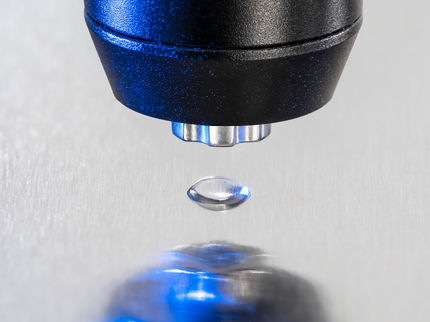To use all functions of this page, please activate cookies in your browser.
my.chemeurope.com
With an accout for my.chemeurope.com you can always see everything at a glance – and you can configure your own website and individual newsletter.
- My watch list
- My saved searches
- My saved topics
- My newsletter
Carrot seed oil
Carrot seed oil is the essential oil extract of the seed from the carrot plant. The oil is steam distilled from the dried fruit. The odour is a dry-woody, earthy sweet smell, a yellow or amber-coloured to pale orange-brown liquid. Carrot seed oil can be found in some skin care products. Product highlight
Carrot seed essential oil informationCarrot seed oil is extracted from Daucus carota of the Apiaceae family and is also known as wild carrot and Queen Anne's lace. This is the essential oil extracted from the seeds and should not be confused with a macerated oil made when people infuse the carrot material in a base oil. This must be one of the most underrated essential oils in aromatherapy. It has a soft earthy smell and not only helps to relieve stress and exhaustion, but is a powerful detoxifier and liver booster, while stimulating and rejuvenating the skin in general, thereby adding elasticity to any skin. At the same time it fights any skin problems, such as psoriasis, eczema, weeping sores, ulcers, boils and carbuncles. The formative action on the epidermal cells help to keep wrinkles at bay and is also helpful when fighting liver spots (age spots). Oil properties Carrot seed oil has a slightly sweet, dry and earthy aroma. Origin of carrot seed oil Carrot seed oil is mainly obtained from wild carrots, usually found in Europe. It is an annual or biennial herb with hairy leaves and umbels of white lacy flowers with purple centers. The name is derived from the Greek 'Carotos' and it had great medicinal value in ancient times, especially for its carminative properties. In modern application, it is used for cancer patients, especially those with stomach and throat problems. Since carrot seed oil contains carotene and vitamin A, it is also very good for healthy skin, hair, gums and teeth and is also associated with good eyesight. Extraction The oil is extracted by steam distillation from the dried seeds, but the whole of the plant can yield an essential oil. Chemical composition The main chemical constituents of carrot seed oil include a-pinene, camphene, b-pinene, sabinene, myrcene, y-terpinene, limonene, b-bisabolene, geranyl acetate and carotol. Precautions Although it is regarded to be a safe oil, it is best avoided during pregnancy. Therapeutic properties The therapeutic properties of carrot seed oil are antiseptic, carminative, cytophylactic, depurative, diuretic, emmenagogue, hepatic, stimulant, tonic and vermifuge. UsesCarrot seed oil has a detoxifying effect on the liver and helps to fight jaundice, while at the same time cleaning the digestive system and the body as a whole. It is helpful for arthritis, gout, edema, rheumatism and the accumulation of toxins in muscles and joints and also strengthens the mucus membranes in the nose, throat and lungs, thus having a beneficial effect on problems such as bronchitis and influenza. It relieves fluid retention and can be beneficial in cases of anorexia, while it revitalizes and tones the skin, helping in cases of dermatitis, eczema and rashes. Summary Carrot seed oil's greatest benefit lies in its purifying effect on the liver and the digestive system. It is also a great help in the treatment of muscular aches and pains, skin problems and respiratory ailments. Burners and vaporizersCarrot seed oil can be used in vapor therapy for relieving stress, boosting the liver, the digestive and respiratory systems, as well as for muscle pains. It does not have an over-powering smell, but this earthy smell will help to "ground" a person while fighting stress and exhaustion. Creams and lotionsIt has a nearly magical rejuvenating effect on the skin, to not only soften and smooth the skin, but to assist with cell growth and skin rejuvenation. Blended massage oil or in the bathAs a blended massage oil or diluted in the bath, carrot seed oil can assist with muscle pains and in boosting the respiratory tract, while detoxifying the body and boosting the manufacture of red blood cells. It blends well with other oils including bergamot, juniper, lavender, lemon, lime, cedarwood, geranium, as well as all citrus and spicy oils. |
|||
| This article is licensed under the GNU Free Documentation License. It uses material from the Wikipedia article "Carrot_seed_oil". A list of authors is available in Wikipedia. |







